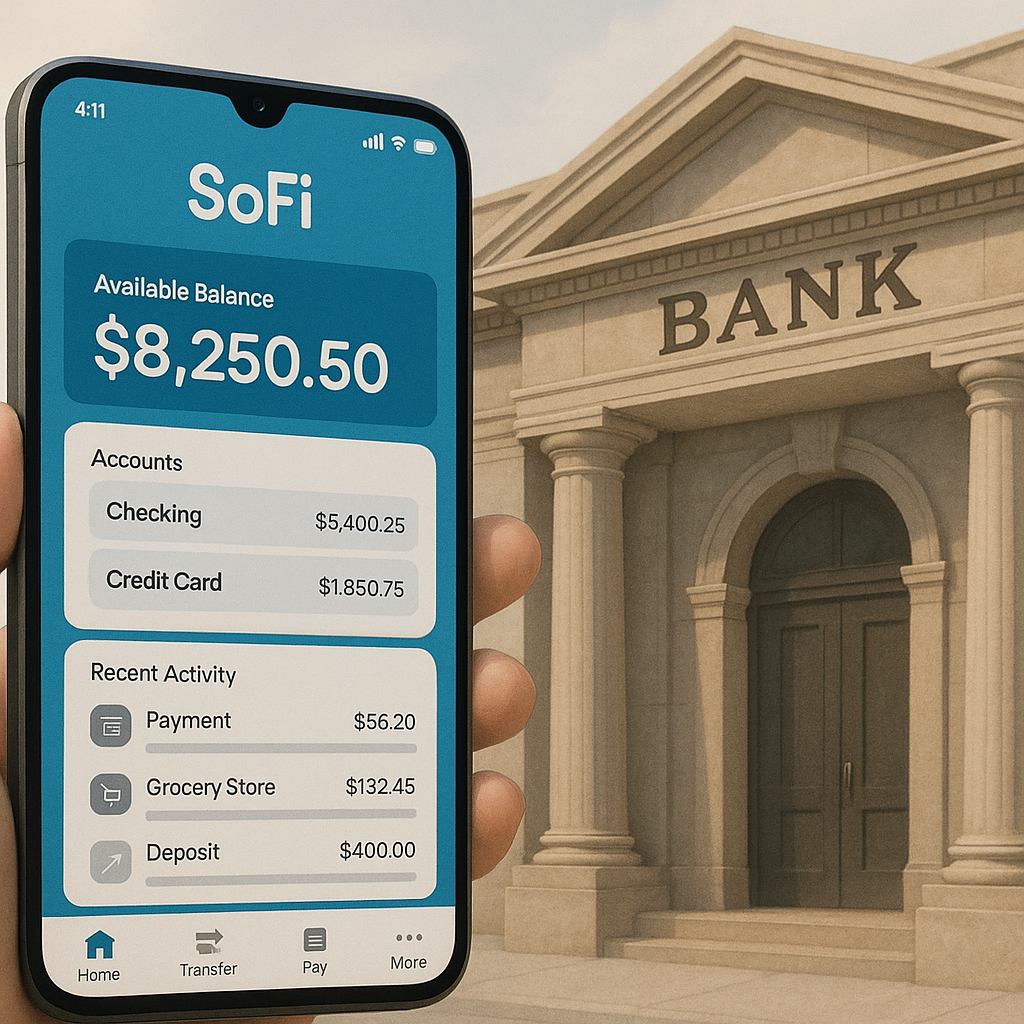The market's got a serious crush on SoFi these days. But should it?
I've been watching the fintech sector evolve for years, and there's something about SoFi that feels simultaneously promising and... oddly familiar. Like we've seen this movie before, but can't quite remember how it ends.
CEO Anthony Noto keeps insisting the company is "just getting started" despite being founded back in 2011. Thirteen years is a long time to be at the starting line, isn't it? That's either remarkable patience or concerning slowness, depending which side of the trade you're sitting on.
Look, the bull case isn't complicated. SoFi navigated the regulatory labyrinth to snag a national bank charter (no small feat), just raised $1.5 billion in fresh capital, and has successfully expanded beyond its student loan refinancing roots. Quarter after quarter, the management team hits their marks. Member growth? Robust.
But hold on.
Before we all start liquidating our 401(k)s to go all-in on SOFI shares, let's talk about what banking actually is. Because underneath all the slick marketing and app notifications, banking remains fundamentally a commodity business. I've covered financial services since before fintech was even a term, and the story rarely changes – just the packaging.
SoFi's primary differentiator is its tech-forward approach and cross-selling opportunities. That's valuable! It is! But revolutionary? In 2024? When my 73-year-old father's credit union has an app that lets him deposit checks by taking pictures? C'mon.
The recent capital raise deserves particular scrutiny. Bulls are calling this $1.5 billion influx "strengthening the balance sheet," which... sure. Technically accurate. In the same way that selling off your garage would improve your home's financials – you'd have cash, but less house. The real questions nobody seems to be asking: Was the dilution worth it? And what exactly are they planning to do with all that money?
Acquisition rumors are swirling through financial circles like autumn leaves. Having spoken with several fintech VCs last month, I can tell you quality targets aren't exactly going for bargain basement prices. Any acquisition juicy enough to move the needle would require SoFi to pay a premium that might erase the very growth advantages they're trying to buy.
Now about that $40 target some analysts are floating for December 2026. Quick math puts that around a $50 billion market cap. For perspective (and I checked these numbers twice), that's larger than First Republic was before its collapse and creeping up on established regional powerhouses that have been building trust since your grandparents' day.
Impossible? No.
Pricing in flawless execution while ignoring the history of banking? Absolutely.
The real debate about SoFi isn't whether it's a good company – they've built something substantial – but whether it's a good investment at current prices. Banking has historically been where ambitious growth stories go to meet regulatory reality. The sector's natural constraints on profitability exist for reasons that predate all of us.
I visited SoFi's offices last year and was impressed by the energy and talent. But I couldn't help wondering: does enthusiasm translate to sustainable advantage? Because customer acquisition costs aren't getting cheaper, credit quality becomes a whole different ballgame as you scale lending, and at some point, you have to admit that checking accounts and loans are... well, checking accounts and loans, regardless of who's offering them.
For the SoFi bulls reading this (and I know you're out there, probably already composing angry tweets), ask yourselves: Does SoFi have a moat that JPMorgan, with its $14 billion annual tech budget, can't eventually overcome? Can they maintain growth trajectories without compromising underwriting standards? And is the current valuation already baking in most of the good news?
Banking is ultimately built on trust accumulated over decades. SoFi wants to shortcut that process through technology and marketing. Sometimes that brilliant strategy works! And sometimes... well, sometimes it ends with painful reminders about why banking evolved the way it did.
The most successful long-term investments in financial services rarely come from the flashiest new entrants. They come from the steadiest compounders – the boring institutions that just keep executing year after year after year.
If you're betting on SoFi hitting $40, you're not just betting on execution. You're betting on a fundamental reshaping of how Americans bank. That's either visionary or delusional.
And the funny thing about those two options? You only know which one it was after the fact.
